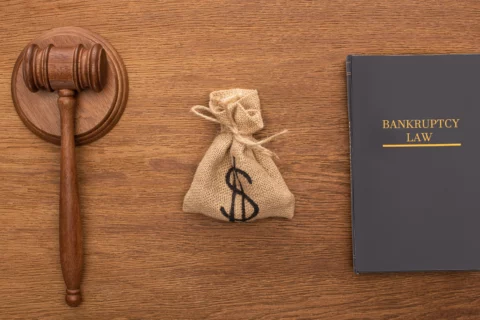Filing a Bankruptcy in Illinois
For most people struggling with debt, declaring bankruptcy could be a debt relief solution that will allow them to get a fresh start. Bankruptcy is an honest and legal way for someone to get out of financial trouble and start anew.
Bankruptcy laws are fairly complex, and you must follow all state procedures and regulations in Illinois.
If you need assistance in your bankruptcy filing in Illinois, contact Cutler & Associates, LTD, and let one of our local attorneys help you.
How It Works
When you file for bankruptcy, your assets and liabilities will be evaluated by the bankruptcy judge and the trustee to determine whether you can pay for debts owed to your creditors. They will then decide if your debts could be discharged in your bankruptcy case. Filing for bankruptcy can also put an end to garnishment and debt collection from creditors, stop a house foreclosure, and prevent your car and/or other properties from being repossessed.
There are different types of bankruptcy options available for individuals, and the two most common are Bankruptcy Chapter 7 and Bankruptcy Chapter 13.
In Chapter 7, all your assets will be liquidated except for your certain exempt assets. Once liquidated, it will be used to repay your outstanding debt balance. Filing a Chapter 7 bankruptcy can discharge most, if not all, consumer debts, and bankruptcy proceedings can be finished in a few months.
On the other hand, a Chapter 13 bankruptcy case would typically last for 3-5 years, depending on your debt repayment plan. Known also as a reorganization, or as the wage earner’s plan, it is a special kind of debt adjustment where you negotiate a debt payment plan in court. Once you file a Chapter 13, it will allow you to keep your properties that are subject to security interests by making sure that you make the payments required under a long-term repayment plan.
Consult with a trusted bankruptcy lawyer today and discuss your financial situation to determine if you’re qualified for a bankruptcy filing.
Bankruptcy Filing
 A bankruptcy procedure requires much paperwork. You must provide information about your financial situation, which means you’d have to provide a list of your creditors and your secured and unsecured debts, collect pay stubs, and submit tax returns. Your files must be ready for your bankruptcy forms.
A bankruptcy procedure requires much paperwork. You must provide information about your financial situation, which means you’d have to provide a list of your creditors and your secured and unsecured debts, collect pay stubs, and submit tax returns. Your files must be ready for your bankruptcy forms.
Bankruptcy filers are also required by bankruptcy laws to take a credit counseling course before filing and to finish a debtor education course. Only then will you receive your bankruptcy discharge. Courses must be taken from an approved and accredited credit counseling agency, with prices ranging from $20 – $100.
Once your bankruptcy petition is prepared, you’d have to file it in court and pay the required payments.
If you want to know more about bankruptcy rules and how to file bankruptcy, connect with a trusted bankruptcy lawyer today.
Life After Bankruptcy
It is important that you understand the bankruptcy process as well as to know what happens once you filed for bankruptcy. While declaring bankruptcy will give you a fresh start and debt relief, there are still some consequences that you should take into consideration when planning to file bankruptcy.
Once you declare bankruptcy, it will have a big impact on your credit score. Indeed, you will no longer be liable for discharged debts after bankruptcy. However, a bankruptcy will be kept in your credit report for up to 10 years. This might affect your ability to apply for loans, open a new credit line, or even apply for jobs. Nevertheless, there are many ways to improve your credit score after bankruptcy, and there are many strategies for rebuilding credit after bankruptcy.
Although bankruptcy can give you debt relief, it only eliminates dischargeable debts (obligations that can be wiped out by your bankruptcy discharge) such as credit card debt, medical bills, personal loans, and past-due utility bills. Non-dischargeable debts such as alimony, child support, tax debts, and student loans can’t be eliminated. However, filing bankruptcy can loosen your financial obligations and help you start repaying these kinds of debts.
If you’re considering bankruptcy, or if you’re not sure if filing bankruptcy is the right debt solution for you, our experienced bankruptcy attorneys at Cutler & Associates, Ltd. are here to help.
Let our bankruptcy law firm be your partner. Together, let us evaluate your financial situation and discuss your bankruptcy and non-bankruptcy options. Call us today (224) 836-4956 and let us give you a fresh start.


